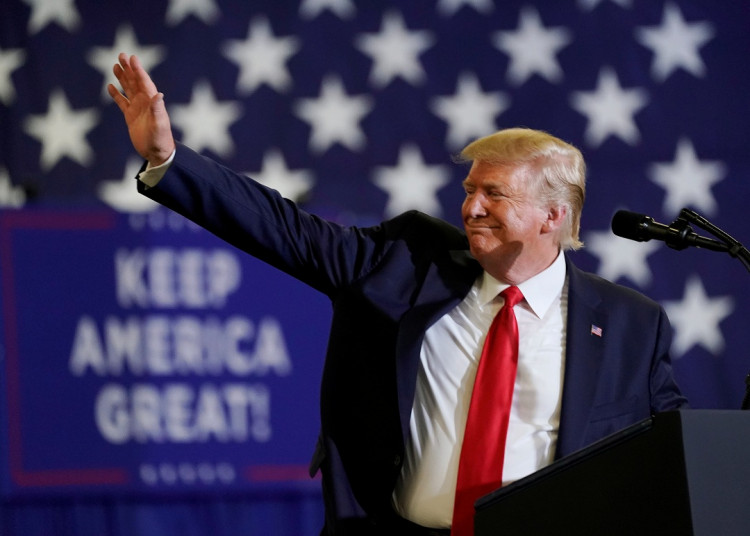China is seeking to reassure president Donald Trump the U.S. will remain the strongest country in the world despite its economic rise as it tries a new tack to get Trump to ease-up on his trade war.
Sounding extremely conciliatory, Chinese State Councilor and Foreign Minister Wang Yi said China has no intention of unseating the U.S. as the world's leading economic power. China, however, wants Trump to "remove all unreasonable restrictions" to international trade.
"China-U.S. relations today have once again come to cross roads," said Wang at a dinner co-hosted by The US-China Business Council and the National Committee on U.S.-China Relations.
"While China opens wider to the U.S. and the rest of the world, we expect the U.S. to do the same to China and remove all unreasonable restrictions," according to Wang.
Wang said he hopes the upcoming trade negotiations scheduled for October will "produce a positive outcome." He also pointed out the business opportunity for the U.S. is working with China on trade and international relations.
But he also noted the deleterious effects of Trump's trade war on both countries.
"The trade frictions between China and the U.S. in the last year have inflicted losses on both countries, losses that should not have happened," according to Wang.
To end Trump's trade war, China and the U.S. should "explore new areas of cooperation." He also said China has done its part to advance globalization.
"In a word, China's efforts and achievements of reform and opening up in the past several decades have been widely recognized. They should not be deliberately ignored or denied."
And to drive home his point China isn't an existential threat to the U.S., Wang said China has no intention of playing "Game of Thrones" on the world stage. He said for now and for the foreseeable future, "the United States is and will still be the strongest country in the world."
While he held out a hand to Trump, Wang also defended China's Belt and Road Initiative (BRI), which is still being criticized by Washington as a threat to the U.S. and a debt trap for debtor nations. He said BRI is "not targeted at the U.S. ... but there should be no attempts to discredit or undermine it."






